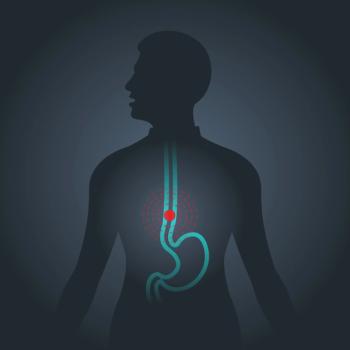
Spatial transcriptomics and multiplex immunohistochemistry from samples may elucidate outcomes for patients who undergo surgical care for cancer.

Your AI-Trained Oncology Knowledge Connection!


Spatial transcriptomics and multiplex immunohistochemistry from samples may elucidate outcomes for patients who undergo surgical care for cancer.

Future work may focus on optimizing symptom management associated with percutaneous transesophageal gastrostomy placement in malignant bowel obstructions.

Postoperative length of stay ranged from 4 to 9 days for patients who underwent percutaneous transesophageal gastrostomy for malignant bowel obstructions.

A lack of guidelines, a loss of follow-up, and out-of-state procedures are all potential reasons for 26% of patients undergoing appendectomy.

The staged approach to colectomy offers survival benefits, and it may help avoid unnecessary procedures that only require appendectomy.

“We did not find any benefit for any of the subgroups in our paper and our study,” Muhammad Talha Waheed, MD, stated.

Adding HIPEC to CRS did not show any added benefit but has shown increased toxicities in patients with colorectal peritoneal metastasis.

Muhammad Talwa Waheed, MD, found that resection after appendectomy should be prioritized in the treatment of patients with appendiceal cancer.

Patients with peritoneal metastases were historically associated with limited survival and low consideration for clinical trials.

Muhammad Talha Waheed, MD, stated that a retrospective study found an OS benefit in CRC peritoneal metastasis with cytoreduction surgery without HIPEC vs with HIPEC.

Laparoscopic, histologic, and biomarker responses occurred at all dose levels of mitomycin treatment in patients with peritoneal metastases.

A phase 2 trial presented at SSO met its primary end point by achieving negative margins in 79% of patients with node-negative rectal cancer.

At 5 years, 100% of patients with breast cancer who did not receive surgery had ipsilateral breast tumor relapse-free survival.

Experts discuss findings related to gastrointestinal cancer outcomes as well as treatment inequalities presented at the 2024 SSO Annual Meeting.

Retrospective findings may establish a “framework” for improving the accessibility, timeliness, and appropriateness of surgical cancer care in disadvantaged areas.

Tailoring neoadjuvant therapy regimens for patients with mismatch repair deficient gastroesophageal cancer represents a future step in terms of research.

Not much is currently known about the factors that may predict pathologic responses to neoadjuvant immunotherapy in this population, says Adrienne Bruce Shannon, MD.

Quantifying disease volume to help identify potential recurrence following surgery may be a helpful advance, according to Sean Dineen, MD.

Sean Dineen, MD, highlights the removal of abdominal wall lesions and other surgical strategies that may help manage symptoms in patients with cancer.

Jonathan Zager, MD, spoke about the use of observation vs systemic immunotherapy to treat patients with stage IIIA and IIIB melanoma.

Data highlight that patients who are in Black and poor majority areas are less likely to receive liver ablation or colorectal liver metastasis in surgical cancer care.

Findings highlight how systemic issues may impact disparities in outcomes following surgery for patients with cancer, according to Muhammad Talha Waheed, MD.

Pegulicianine-guided breast cancer surgery may allow practices to de-escalate subsequent radiotherapy, says Barbara Smith, MD, PhD.

Adrienne Bruce Shannon, MD, discussed ways to improve treatment and surgical outcomes for patients with dMMR gastroesophageal cancer.

Barbara Smith, MD, PhD, spoke about the potential use of pegulicianine-guided breast cancer surgery based on reports from the phase 3 INSITE trial.

Patient-reported symptoms following surgery appear to improve with the use of perioperative telemonitoring, says Kelly M. Mahuron, MD.

Treatment options in the refractory setting must improve for patients with resected colorectal cancer peritoneal metastasis, says Muhammad Talha Waheed, MD.

Axillary ultrasound and biopsy appear to be an effective strategy to identify nodal disease in patients with early-stage triple-negative breast cancer.

The phase 3 CheckMate 577 trial is the first to show a checkpoint inhibitor in the adjuvant setting after trimodality therapy demonstrate a statistically significant and clinically meaningful improvement in disease-free survival in patients with resected esophageal and gastroesophageal junction cancer.

Adjuvant immunotherapy treatment was associated with a significant survival benefit for patients with stage II melanoma in a study presented at the Society of Surgical Oncology 2021 International Conference on Surgical Cancer Care.